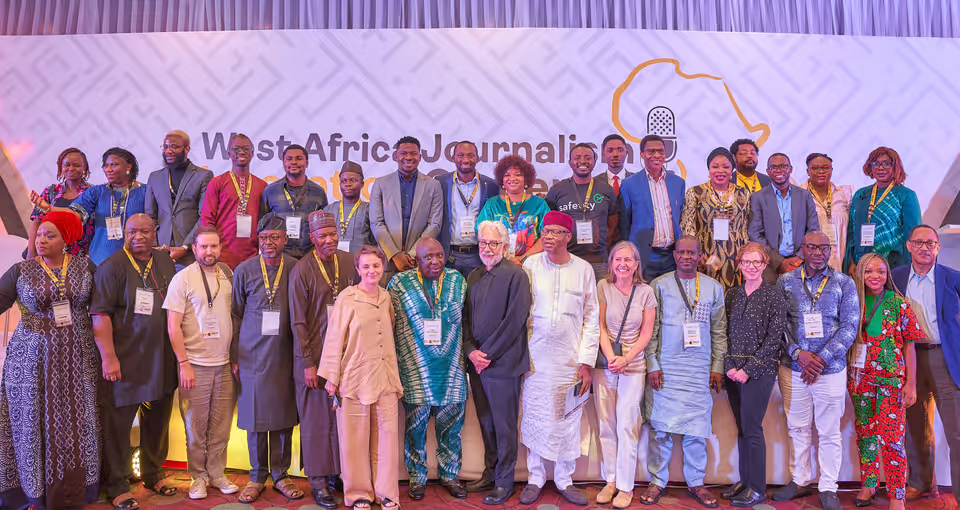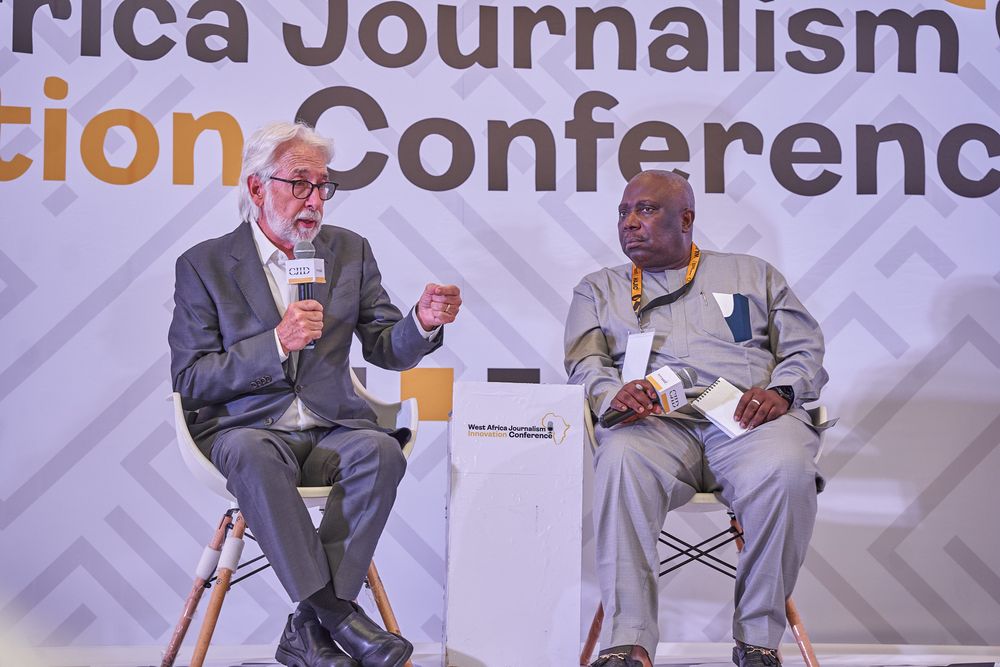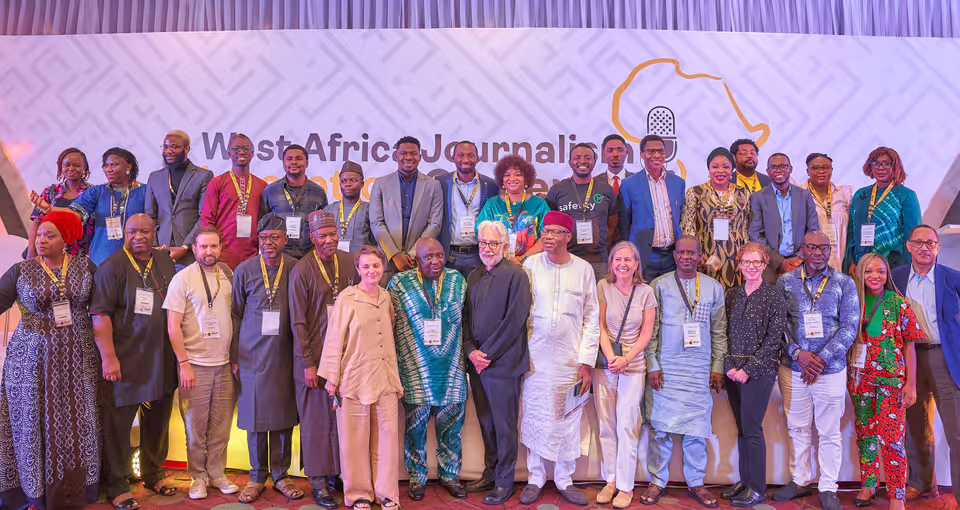“The intersection of tech and journalism lies in the comprehending of current events. Embracing a tech agenda within newsrooms has become essential,” Richard Gevers, founder of Open Cities Lab said during the just concluded West Africa Journalism Innovation Conference (WAJIC).
These words resonate with the over 400 media professionals, journalists, academia, policymakers and media rights advocates from across 11 countries including from Europe and America that were present at the maiden edition of WAJIC last week in Abuja, Nigeria’s capital city.
The conference featured workshops, and expert panels and also explored media innovations and technological tools that can fortify journalism practice in the African region.
WAJIC is hosted by the Centre for Journalism Innovation and Development
During a panel discussion on “Artificial Intelligence (AI), Digital Innovations and the Future Journalism”, Joshua Olufemi, the founder of Dataphyte, a Pan-African data journalism firm said that: “Everything we’ve done in the Journalism space, from print to broadcast, has been aided by technology, one way or the other; why do we then think that Artificial intelligence is any different?”
“We should think about how can we use AI to answer the journalism question, we need AI to do community journalism,” Olufemi added, advising journalists and other media practitioners not to fight the emergence of artificial intelligence.
Several experts who spoke on the subject encouraged delegates at the conference to pay attention to leveraging the technology for increased newsroom productivity. For instance, Dataphyte has developed Nubia, an AI-powered reporter that auto-creates development reports and data insights.
The Nigeria-based data newsroom is using Nubia to transform real-time data from satellite and web camera imagery, weather and socioeconomic data into news reports, data insights and advisory that can be distributed directly to the newsroom and general audience.

Using AI to counter AI
With the proliferation of generative AI, journalists have had to battle misinformation through the rise of deep fakes. Aside from misinformation, there has been increasing fear that AI might end up replacing journalists.
“If AI can take your job then you probably shouldn’t have the job in the first place,” Muhammed Akinyemi, Editor-in-Chief of Zikoko Citizen, argues.
“As much AI can be threatening to the information ecosystem in Africa, we can also leverage it to the good use of our daily activities,” Adesola Ikulajolu, Managing Editor, ROUNDCHECK, a Nigerian fact-checking platform, told Bendada.com. “If AI can build deep fakes, AI should also build what can be used to spot such deep fakes.”
Currently, DUBAWA, the African foremost fact-checking newsroom is building an AI-powered tool that will help in combating audio-based fake news on the continent. During a workshop at the sidelines of WAJIC on Innovative Trends in Verification, there was an illustration of different tech tools that journalists can use to fact-check claims, ranging from Lumen5 for video, Verification Game by FactCheck-Hub and the Dubawa Audio Platform.
Related Article: Artificial intelligence is driving misinformation through deep fakes
“We are concerned about the dangers of ourselves, not machines. AI(s) are learning from the vast expression of humans,” Richard Gingras, Google Vice President, News, said during a keynote address at WAJIC. “Technology brings possibilities, but it does not necessarily have values. That’s where the human component comes in.”

With the consciousness of this human component, WAJIC delegates were taught the need to ensure that the purpose of journalism is what defines the use of AI in their respective newsrooms and organisations. “The purpose of journalism defines how we innovate tools that will drive our work. Journalists should always look at the bright side of technology, including AI,” Olufemi added.
“The journalism community thinks about AI with fear,” according to Gingras. However, on the other hand, it will drive efficiency in what will do, like drafting narrow stories to gain more reach and drive advertising revenue.”
“Use AI the same way you’ll use pen and paper in reporting because the ethics doesn’t change, always fact check. Stay through to the ethics and don’t let the computer do everything,” says Ayantola Alayande, a digital and policy expert at Dataphyte.
Alayande also emphasised the need to educate journalists on how to report and use AI ethically. However, he lamented the lack of financing in ensuring the adoption of tech, like AI in African newsrooms.
Johnstone is a fellow of the West Africa Journalism Innovation Conference 2023, he attended the conference as a delegate representing BCSL-Bendada.com.
Get passive updates on African tech & startups
View and choose the stories to interact with on our WhatsApp Channel
Explore




